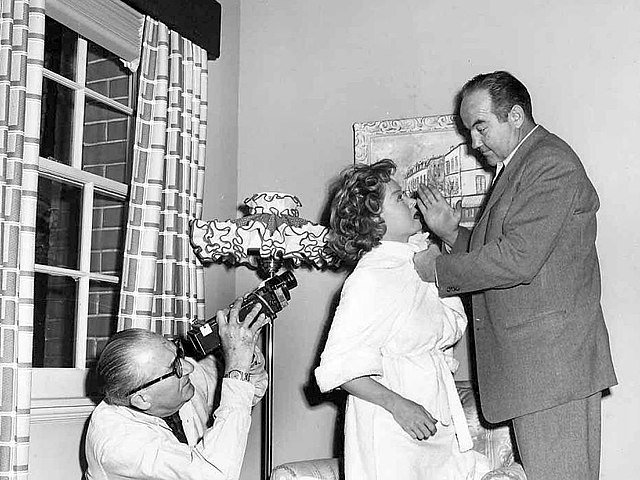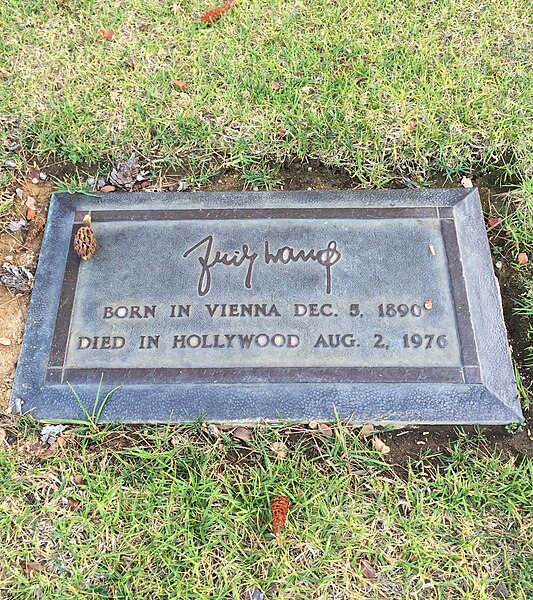The Testament of Dr. Mabuse
The Testament of Dr. Mabuse, also called The Last Will of Dr. Mabuse, is a 1933 German crime-thriller film directed by Fritz Lang. The movie is a sequel to Lang's silent film Dr. Mabuse the Gambler (1922) and features many cast and crew members from Lang's previous films. Dr. Mabuse is in an insane asylum where he is found frantically writing his crime plans. When Mabuse's criminal plans begin to be implemented, Inspector Lohmann tries to find the solution with clues from gangster Thomas Kent, the institutionalized Hofmeister and Professor Baum who becomes obsessed with Dr. Mabuse.
Austrian film poster
A ghostly Dr. Mabuse announces his testament of crime. After the film's release, director Fritz Lang felt these supernatural scenes should not have been included.
Joseph Goebbels (pictured) withheld the release of Testament of Dr. Mabuse, stating that the film "showed that an extremely dedicated group of people are perfectly capable of overthrowing any state with violence".
Friedrich Christian Anton Lang, better known as Fritz Lang, was an Austrian-American film director, screenwriter, and producer who worked in Germany and later the United States. One of the best-known émigrés from Germany's school of Expressionism, he was dubbed the "Master of Darkness" by the British Film Institute. He has been cited as one of the most influential filmmakers of all time.
Lang in 1969
Lang and Thea von Harbou in their Berlin flat, 1923 or 1924
Lang with Gloria Grahame and Broderick Crawford on the set of Human Desire
Grave of Lang, at Forest Lawn Hollywood Hills







